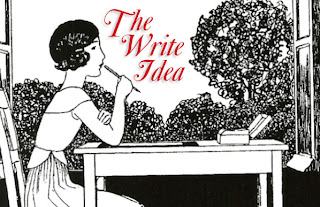 Illustrations by Robert Lawson
Illustrations by Robert Lawson"This is the story of my mother and my father and of their fathers and mothers. Most of it I heard as a little boy, so there may be many mistakes; perhaps I have forgotten or mixed up some of the events and people. But that does not really matter . . . None of them were great or famous, but they were strong and good."—Robert Lawson

I love this book because of it's simplicity. The stories are memorable and short. I also love books that go into considerable detail explaining when and why a little Dutch girl would live on a farm in New Jersey, what her daily life was like and where her necklace was made.
I'm conflicted about myself as a family historian. Should I be vibrant or verbose? How much research is enough? Although it's fascinating, do I really need to understand the court system of the fourteenth century well enough to explain it to children? Has my fact-finding turned into procrastination?
Last weekend I told my grandkids 1,000 years of Bagley history in about thirty minutes. The thumbnail sketch caught their attention—a condensed version of family history is a good beginning, I've decided. Some of you have asked how to get started with the information you already have, so I've created an outline.

"My mother's mother was a little Dutch girl,
who lived on a farm in New Jersey."
who lived on a farm in New Jersey."
I love this book because of it's simplicity. The stories are memorable and short. I also love books that go into considerable detail explaining when and why a little Dutch girl would live on a farm in New Jersey, what her daily life was like and where her necklace was made.
I'm conflicted about myself as a family historian. Should I be vibrant or verbose? How much research is enough? Although it's fascinating, do I really need to understand the court system of the fourteenth century well enough to explain it to children? Has my fact-finding turned into procrastination?
Last weekend I told my grandkids 1,000 years of Bagley history in about thirty minutes. The thumbnail sketch caught their attention—a condensed version of family history is a good beginning, I've decided. Some of you have asked how to get started with the information you already have, so I've created an outline.
Ten Easy Steps to Family History
- Make a simple chart of you, your parents, and their parents, going back as far as you want. (ex: Marty—June and Jiggs—Agnes and Axel; Adelila and Hawley.)
- Create a new folder on your computer and name it: Information for Family History.
- Create a separate file for each of the people on your chart. They will be blank except for the person's name. Drag the files into your folder.
- Now open each file and list the details you already know. (ex: Axel born Sweden about 1890; came to America when he was 17.)
- Do you remember any family stories? List them in the appropriate file. (ex: Jiggs chased by a bear; Hawley ran away to the circus.)
- Choose one of the stories and write it as a chapter or a blog post. Include any dates or places you're sure of.
- Fact check your story by calling a relative or two. (Be sure to add any stories they share to your files.)
- Find photos to illustrate the story if you can.
- Save your story in a new folder called "Family History."
- Repeat until you've told all the stories you remember. Then start searching for new ones.

"So they were married. They worked hard and were strong and good. They had many children and one of them happened to be me!"—Robert Lawson
Family history is your unique tradition. Pass it on.
Books I'd recommend:
Need to Know? Tracing Your Family History by Anthony Adolph
Climbing Family Trees by Trina Boice and Tracey Long
Writing Family Histories and Memoirs by Kirk Polking
(Coming tomorrow: Ten Steps—Find the Story in Your History)
*Homework:
~List ten family legends. (ex: Grampa fought in WW I; Somebody crossed the plains; mom's ancestor descended from royalty.)
~Choose one, and write it as a factional post. (Use the facts you know, fictionalize the details.)


4 comments:
done :)
For as long as I can remember our family went to two family reunions every summer. One year when I was a teenager I wanted to know how I was related to all those people so I made myself a chart. I started with my great grandparents at the top and went down. Because of the large number of children each generation had I soon was taping pages on the sides. Forty years later I still have that scroll of handwritten names but the invention of the home computer has certainly simplified storing and finding information and pictures. Hooray for family history! No ancestor left behind.
It's funny that you posted about this today, since I too posted about writing family history and was actually inspired by your earlier post about starting a book. Thanks for all the motivation and inspiration!
thank you for all of this great info oma! this is exactly what i needed for a lesson about writing personal histories in relief society tomorrow. you are my go-to expert!! i appreciate your gifting this information to us. xo.
Post a Comment